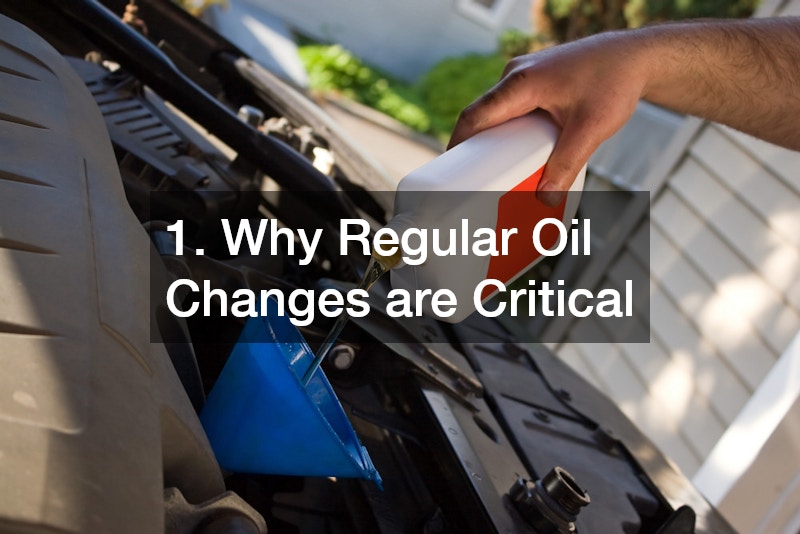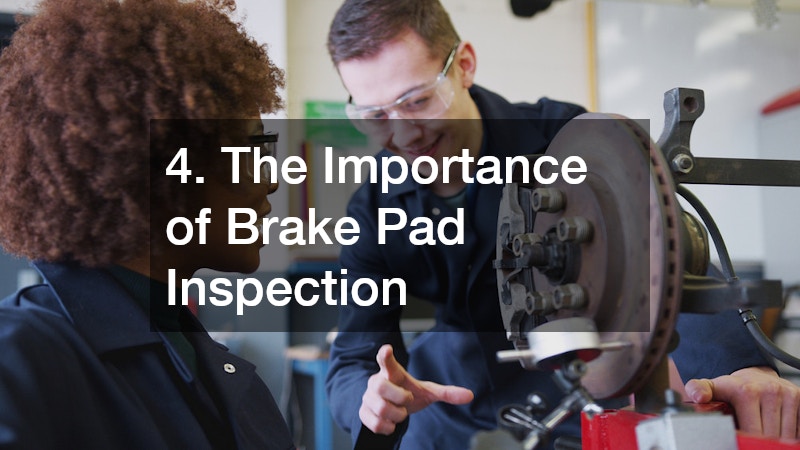Owning a new car is an exciting experience, filled with the anticipation of countless adventures and commutes. However, to ensure that your vehicle remains reliable and safe over time, it’s crucial to understand the basics of car maintenance. In this article, we will discuss 10 essential car maintenance facts that every new car owner should know. By familiarizing yourself with these concepts, you can significantly extend the life of your vehicle, prevent costly repairs, and ultimately save both time and money. Maintaining your car doesn’t just protect your investment; it also guarantees your safety and that of the passengers you carry. Whether it’s learning about simple tasks like oil changes or more complex ones involving the transmission system, these car maintenance tips are invaluable. Moreover, regular car care shields you from unexpected breakdowns and improves fuel efficiency, helping you drive with peace of mind wherever the road takes you.
Additionally, staying on top of routine checks, such as tire pressure, brake performance, and fluid levels, can prevent more serious issues down the road. Even small adjustments, like replacing air filters and keeping the battery clean, contribute to a smoother driving experience. Remember that your car’s owner’s manual is a valuable resource—always refer to it for guidance on maintenance schedules and specific recommendations for your model. By adhering to these guidelines, you’ll not only keep your vehicle in top shape but also maximize its resale value when the time comes to upgrade. Ultimately, investing time in regular maintenance is an investment in your car’s longevity, performance, and your driving safety.
1. Why Regular Oil Changes are Critical

One of the most fundamental car maintenance facts is understanding the importance of regular oil changes. The oil in your car’s engine keeps all its parts lubricated, preventing wear and tear. When the oil becomes dirty and old, it loses its ability to lubricate properly, which can lead to severe engine damage.
For BMW repair and other high-performance vehicles, sticking to a regular oil change schedule is even more crucial. These vehicles often run on more sophisticated engines that require premium-grade oil to function optimally. Always consult your car’s manual or a professional to determine the best oil type and change frequency for your vehicle.
Apart from protecting the engine, regular oil changes can enhance fuel efficiency. Clean oil reduces friction, allowing the engine to run smoothly and efficiently. This small act of maintenance can result in long-term savings on fuel costs, making it a priority in your car care regimen. Additionally, regular oil changes contribute to a cleaner engine and improved performance, ensuring your vehicle runs at its peak for longer periods. Over time, these benefits can add up, preventing expensive repairs and maintaining the overall value of your car.
2. How Often Should You Rotate Your Tires?
Rotating your tires is another critical aspect of maintaining your vehicle. Tires wear out unevenly, and rotating them helps ensure even wear across all tires, extending their lifespan. Understanding the optimal rotation schedule is a vital car maintenance fact that can prevent premature tire replacement.
Consulting a car accident attorney can provide insights into accidents caused by tire failures. Many such incidents might have been avoided with proper tire maintenance. Ensuring your tires are evenly worn can prevent accidents due to blowouts or skidding, emphasizing safety and cost efficiency.
It’s generally recommended to rotate your tires every 6,000 to 8,000 miles, but always check your vehicle’s manual. This frequency may vary depending on your driving habits and conditions. Regular tire maintenance not only contributes to a smoother ride but also improves fuel efficiency and handling.
3. What to Know About Air Filter Maintenance
The air filter is another crucial component that requires regular attention. Clean air filters ensure the engine receives optimal airflow, which is essential for maintaining engine performance. It’s one of those car maintenance facts that can significantly impact your vehicle’s efficiency.
The process of auto detailing often includes checking and replacing the air filter. A clogged air filter can lead to reduced engine performance and increased fuel consumption. By keeping it clean, you not only enhance your car’s performance but also protect its engine from potential damage.
Replacing the air filter every 15,000 to 30,000 miles is generally recommended. However, this can vary based on your driving environment. Dusty or urban areas may require more frequent changes, making routine checks and replacements an economical practice.
4. The Importance of Brake Pad Inspection

The condition of your brake pads is paramount to your safety on the road. Regular inspection of this component is one of the most crucial car maintenance facts you should be aware of. Worn-out brake pads not only compromise safety but also increase the risk of damaging other brake system components.
For those utilizing Toyota repair service, timely inspections often highlight potential issues before they escalate. Keeping abreast of brake pad condition prevents unexpected brake failures and ensures your vehicle’s stopping power is uncompromised, safeguarding you and your passengers.
Brake pads generally need replacement every 30,000 to 70,000 miles. However, this can vary based on driving conditions and habits, such as frequent braking. Regular inspections and prompt replacements are essential to maintaining an efficient and safe braking system.
5. Coolant System: What You Should Know
Your car’s coolant system is vital for preventing the engine from overheating. Understanding how this system works and maintaining it properly is a key car maintenance fact for extending your vehicle’s lifespan. Neglecting the coolant system can lead to severe engine problems.
Regular brake service can sometimes reveal issues with the coolant system. Coolant levels should be checked regularly, and the fluid should be flushed and replaced according to the vehicle manufacturer’s schedule. Doing so prevents engine overheating and corrosion, ensuring the engine operates efficiently.
Topping off the coolant and checking for leaks are tasks you can perform with some basic guidance. However, periodic professional inspections ensure the entire cooling system, including the radiator and thermostat, is in good working order, preventing costly repairs down the line.
6. Battery Maintenance Tips for Longevity
Ensuring your car battery is in good condition is essential for reliable starts, especially in extreme temperatures. Knowing how to maintain your battery is a crucial car maintenance fact that new car owners should prioritize. Simple maintenance steps can significantly extend a battery’s life.
While you might relate rv roof repairs with camping vehicles, ensuring battery health is relevant across all vehicle types. Routinely checking the battery for corrosion and the tightness of connections can prevent breakdowns. Regular maintenance can thus avert the inconvenience of being stranded due to a dead battery.
On average, car batteries last between three to five years. Testing the battery’s charge regularly and replacing it before it fails can save you from potential distractions during travels. Investing in a good quality battery and maintaining it well ensures consistent vehicle performance.
7. Understanding the Importance of a Timing Belt

Another significant car maintenance fact involves the timing belt, a vital component ensuring your engine’s valves open and close at the right times. The wear and tear on this part can lead to severe engine damage if not replaced periodically. Understanding its role can prevent costly repairs.
In industries like heavy duty towing, timing belts are crucial for vehicle reliability. Replacing the timing belt as recommended by your vehicle manufacturer is necessary to avoid catastrophic engine failure. Unlike other car parts, timing belts don’t often give warning signs before failing, making timely replacements essential.
Typically, a timing belt should be replaced every 60,000 to 100,000 miles. Regular inspection during service appointments ensures you remain ahead of potential hazards. Staying informed about the condition of your timing belt has financial and safety benefits.
8. Transmission Fluid: What New Car Owners Should Know
The transmission fluid in your car is responsible for lubricating and cooling the transmission system. Grasping this car maintenance fact is pivotal for ensuring the longevity and efficiency of your transmission. Keeping the transmission fluid clean is necessary for smooth gear transitions.
A motorcycle accident attorney can highlight how vital a functional transmission is for vehicle control and safety. Checking the fluid level and ensuring it remains at the correct level helps maintain a vehicle’s operational quality. Clean transmission fluid prevents overheating and extends the lifespan of the transmission system.
It is generally recommended to change transmission fluid every 30,000 to 60,000 miles, though this varies depending on your vehicle and driving conditions. Overlooking this aspect of maintenance can lead to costly repairs or replacements, which are easily avoided with routine fluid checks.
9. Why Regular Wheel Alignment is Necessary
Wheel alignment is crucial for keeping your vehicle running smoothly and handling well. It’s among the car maintenance facts that contribute to both safety and longevity of your tires. Regular alignment checks help ensure optimal contact with the road, promoting even tire wear and improved fuel efficiency.
The role of semi truck chrome accessories often goes unnoticed, but alignment remains essential regardless of vehicle type. Misaligned wheels can lead to uneven tire wear and make steering more difficult. Regular alignments, along with tire rotations, can help maximize tire life and enhance your driving experience.
It’s advisable to get a wheel alignment check annually or whenever you notice steering issues. Maintaining proper alignment not only extends the life of your tires but also enhances vehicle control, offering peace of mind on every journey you take.
10. Essential Lights and Signals Maintenance

Ensuring all lights and signals on your vehicle function correctly is indispensable for safety and legality. Being one of the crucial car maintenance facts, working lights ensure other drivers are aware of your intentions on the road. Faulty lights can not only lead to accidents but also legal troubles.
As a junk car buyer might attest, malfunctioning lights reduce a vehicle’s market value. Regularly checking headlights, brake lights, and turn signals is simple and can prevent a variety of problems ranging from fines to collisions. Immediate replacement of burnt-out bulbs should be a priority for every vehicle owner.
Checking lights as part of your routine vehicle inspection ensures optimal visibility and safety during your travels. Carrying spare bulbs and fuses helps address any issues promptly, keeping your vehicle fully functional and roadworthy at all times.
Using These Car Maintenance Facts
In conclusion, understanding essential car maintenance facts is vital for any new car owner who wishes to protect their investment. By keeping track of regular maintenance tasks like oil changes, tire rotations, and battery checks, you significantly extend your vehicle’s lifespan and optimize its performance. Preventive maintenance not only safeguards against unexpected breakdowns but also enhances your driving experience with improved safety and efficiency. Beyond the immediate benefits, these practices promote fuel savings, prolong the life of critical components, and help maintain your vehicle’s resale value. Each maintenance task discussed – from brake pad inspections to ensuring timely transmission fluid changes – has a direct impact on your car’s health and your peace of mind. Should issues arise, professional services like BMW repair or consultation with a car accident attorney can provide comprehensive solutions. This proactive approach to vehicle care reflects responsibility in preserving automotive performance and safety for the long haul. Emphasizing routine checks and professional assistance when needed, car maintenance is not only a requirement but a testament to prudence and preparedness in the world of automobile ownership.
Moreover, staying proactive with your vehicle’s upkeep can help identify potential issues before they become costly repairs. Simple actions like monitoring tire wear, checking the engine coolant levels, and replacing worn-out wiper blades can save you from inconvenient situations. Additionally, regular inspections of your car’s belts, hoses, and exhaust system can ensure that everything operates smoothly, preventing further damage to the engine. With a little time and attention, you’ll keep your car running at its best, maximizing comfort, safety, and reliability. This attention to detail provides a sense of security, knowing that your car will continue to serve you well on all your journeys, large and small. If you have any more questions, visit your local auto shop, and an expert there should be able to help you.


